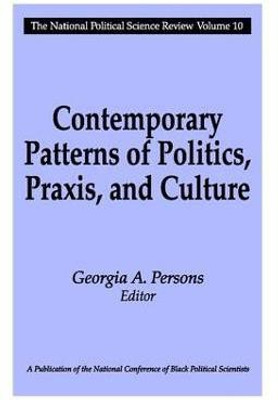Contemporary Patterns of Politics, Praxis, and Culture(English, Paperback, Persons Georgia A.)
Quick Overview
Product Price Comparison
The National Political Science Review is the official publication of the National Conference of Black Political Scientists. This new volume, Contemporary Patterns of Politics, Praxis, and Culture reflects major research focuses across religion, race, gender, culture, and of course, politics. Themes that engage a community of scholars also engage them in praxis as individual citizens and practitioners in a democratic society, and collectively as member-participants in a changing culture. Two themes, religion and culture are relatively new areas of intellectual curiosity for political scientists. Articles in this volume extend the beachheads already established by African-American political scientists in studies that guage the significance and influence of religion in both individual and group behavior. They chart religion's inevitable move onto the center stage of U.S. public affairs. The study of culture has essentially languished for almost a generation within political science, especially with regard to the study of American politics and society. During this time the emphasis has also shifted significantly from an almost exclusive focus on civic culture to an expanding focus on the broad expanse of popular culture in the contemporary period. Culture is the crucible within which politics, race, religion, and gender both foment and ferment, and artistic products of the culture are manifestations and mirrors of how we envision and construct a changing reality. Issues of race, religion, gender and culture are all dimensions of individual and group identity. The dynamics of changing individual and group identities change the underlying cultural canvas against which identity is displayed and politics is acted out. The concept of praxis is relatively new to the lexicon of political science. However, engagement in the practice of politics is not a new idea for African-American social scientists. Indeed, particularly for this group, and clearly for many others, scholarship influences praxis, and praxis influences scholarship. This volume will be of particular interest to ethnic studies specialists, African-American studies scholars, political scientists, historians, and sociologists.


